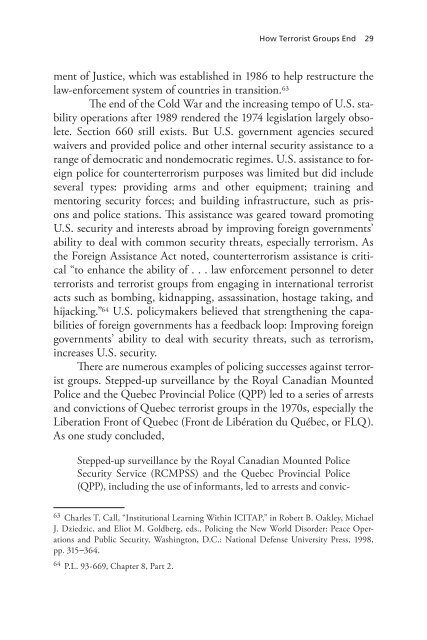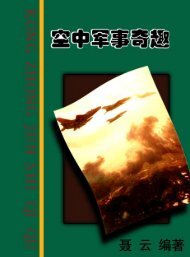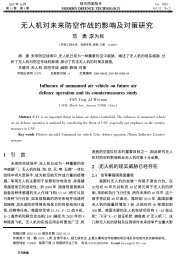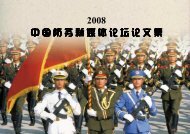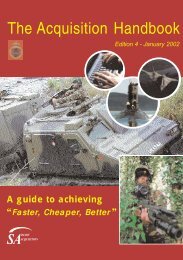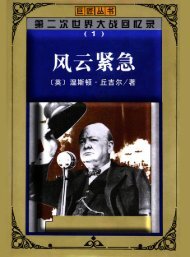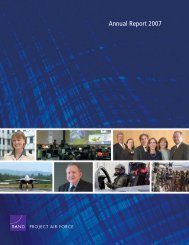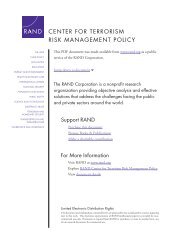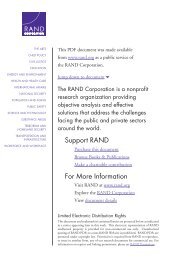How Terrorist Groups End - RAND Corporation
How Terrorist Groups End - RAND Corporation
How Terrorist Groups End - RAND Corporation
You also want an ePaper? Increase the reach of your titles
YUMPU automatically turns print PDFs into web optimized ePapers that Google loves.
<strong>How</strong> <strong>Terrorist</strong> <strong>Groups</strong> <strong>End</strong> 29<br />
ment of Justice, which was established in 1986 to help restructure the<br />
law-enforcement system of countries in transition. 63<br />
The end of the Cold War and the increasing tempo of U.S. stability<br />
operations after 1989 rendered the 1974 legislation largely obsolete.<br />
Section 660 still exists. But U.S. government agencies secured<br />
waivers and provided police and other internal security assistance to a<br />
range of democratic and nondemocratic regimes. U.S. assistance to foreign<br />
police for counterterrorism purposes was limited but did include<br />
several types: providing arms and other equipment; training and<br />
mentoring security forces; and building infrastructure, such as prisons<br />
and police stations. This assistance was geared toward promoting<br />
U.S. security and interests abroad by improving foreign governments’<br />
ability to deal with common security threats, especially terrorism. As<br />
the Foreign Assistance Act noted, counterterrorism assistance is critical<br />
“to enhance the ability of . . . law enforcement personnel to deter<br />
terrorists and terrorist groups from engaging in international terrorist<br />
acts such as bombing, kidnapping, assassination, hostage taking, and<br />
hijacking.” 64 U.S. policymakers believed that strengthening the capabilities<br />
of foreign governments has a feedback loop: Improving foreign<br />
governments’ ability to deal with security threats, such as terrorism,<br />
increases U.S. security.<br />
There are numerous examples of policing successes against terrorist<br />
groups. Stepped-up surveillance by the Royal Canadian Mounted<br />
Police and the Quebec Provincial Police (QPP) led to a series of arrests<br />
and convictions of Quebec terrorist groups in the 1970s, especially the<br />
Liberation Front of Quebec (Front de Libération du Québec, or FLQ).<br />
As one study concluded,<br />
Stepped-up surveillance by the Royal Canadian Mounted Police<br />
Security Service (RCMPSS) and the Quebec Provincial Police<br />
(QPP), including the use of informants, led to arrests and convic-<br />
63 Charles T. Call, “Institutional Learning Within ICITAP,” in Robert B. Oakley, Michael<br />
J. Dziedzic, and Eliot M. Goldberg, eds., Policing the New World Disorder: Peace Operations<br />
and Public Security, Washington, D.C.: National Defense University Press, 1998,<br />
pp. 315–364.<br />
64 P.L. 93-669, Chapter 8, Part 2.


